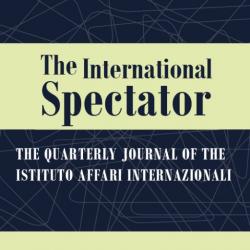Education, Media and Civil Society: The Building of an Islamic Cultural Hegemony in Turkey

The Turkish economy is in freefall with rising inflation, unemployment, poverty and income inequality. Yet, the incumbent Justice and Development Party (JDP) continues to get the support of roughly one-third of the voters according to the latest surveys. Although this is a long way from the peak of the party when it was getting half the overall votes a decade ago, it is nevertheless a significant proportion of the voter base. What explains such a vote? More generally, why do people vote against their own material interests? Looking at the JDP’s twenty-year incumbency, it can be argued that the JDP created party identification amongst a particular set of Turkish voters by utilising religious institutions, the education system, the media and civil society to construct its cultural hegemony.
Keywords: Turkey; Islamic political parties; competitive authoritarianism; democratisation; religion and politics
-
Details
The International Spectator, Vol. 58, No. 1, March 2023, p. 146-161 -
Issue
58/1 -
ISBN/ISSN/DOI:
10.1080/03932729.2022.2140504


